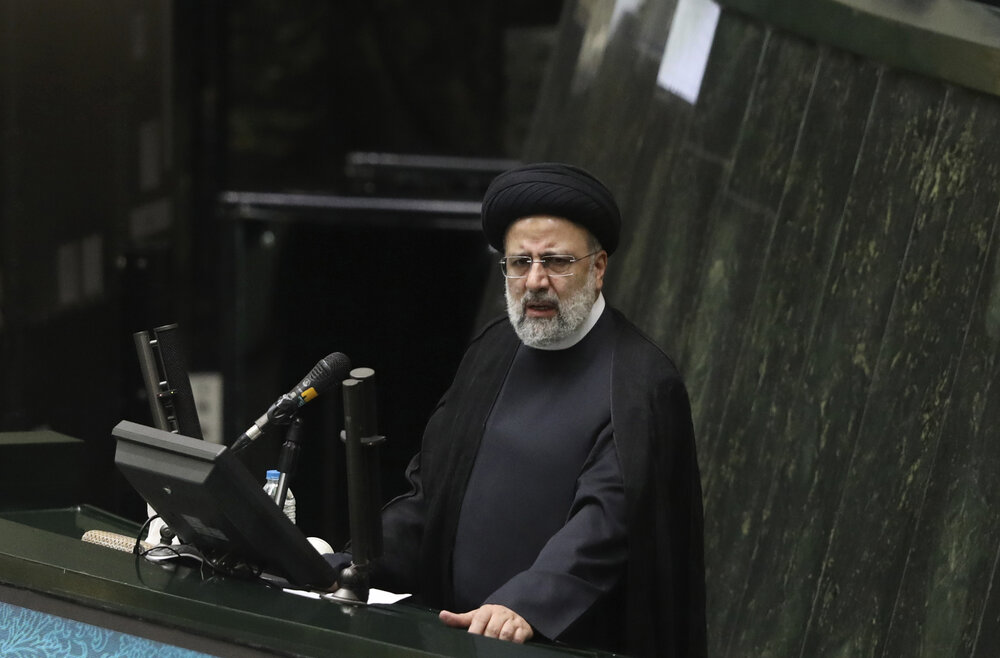Govt. gets Parliament’s approval for eliminating subsidized forex rate

TEHRAN – Iranian Parliament on Sunday approved the general outlines of the national budget bill for the next Iranian calendar year (begins on March 21), allowing the government to eliminate the subsidized foreign currency exchange rate.
The bill was approved during the open session of the parliament with 174 votes in favor, 76 votes against, and six abstentions, IRNA reported.
Prior to the voting, President Ebrahim Raisi how attended the parliament session to defend his administration’s proposed budget bill said the government plans to continue providing subsidized foreign currency (at 42,000 rials per US dollar) for the imports of basic goods in the next few months, saying the condition should be right for eliminating subsidized exchange rate.
“Subsidized exchange rate is the main concern of the government and [we] will continue [providing] it in the next few months until the conditions are ready,” Raisi said.
Iran currently uses three different exchange rates: the official subsidized rate, the market rate, and a rate controlled by the Central Bank of Iran (CBI) available to importers and exporters of essential goods. The latter is known as the NIMA rate.
In February 2021, while Iran's parliament was debating the government’s budget bill for the current Iranian calendar year (started on March 21, 2021), lawmakers proposed the elimination of the subsidized exchange rate, however, the government of President Hassan Rouhani rejected the proposal and insisted on using the subsidized rate, arguing that its discontinuation would lead to major inflationary impulses in the economy.
Speaking at the parliament Raisi noted that the government has decided to continue the allocation of subsidized foreign currency for the import of basic goods despite the fact that all the resources considered for the allocation of such currency in the current year’s budget bill have been already spent.
The government had allocated $8 billion for subsidized foreign currency in the current year budget bill and the parliament had authorized the government to provide this subsidy either directly to people or allocate it for the imports of basic goods.
Raisi stated that since all the budget for the subsidized foreign currency in the current fiscal year has already been paid, according to the national law the government is not obliged to continue its allocation in the current year, however, “The government decided to continue to do so because people’s livelihood is the red line.”
EF/MA
